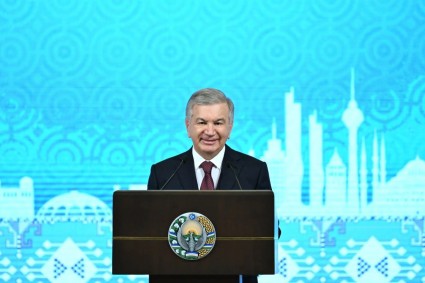This year, Uzbekistan plans to commission 4,300 MW total capacity renewable energy sources (RES). This is stipulated in the Feb. 16 presidential decree on accelerating the introduction of renewable energy and energy-saving technologies in 2023.
2,100 MW of this capacity is expected to source from large solar and wind power plants, 1,200 MW from solar panels installed on social and business facilities, as well as households, and 550 MW from small PV plants.
Thanks to the construction of RES units, the switch of consumers to RES and introduction of energy-saving technologies, this year it is planned to produce an additional 5 billion kWh of electricity and save 4.8 BCM of natural gas.
Sources of financing
15.4 billion will be allocated for these purposes, including funds from investors under public-private partnership (PPP) projects - $13.4 billion, loans from banks - $1.1 billion, own funds of enterprises - $610 million, funds of foreign financial organizations - $150 million and state budget funds of $100 million.
The Decree approved the lists of projects for 27 high-capacity solar and wind power plants under the PPP terms in 2023 and projects for connecting high-capacity solar and wind power plants to power transmission networks.
The Strategic Reforms Agency, together with the Ministry of Investments, Industry and Trade, was instructed to ensure the signing of agreements on attracting funds from international financial organizations worth an additional $2 billion by July 1 for projects for the development of renewable energy sources and the modernization of electricity networks.
During the year, it is planned to provide 20,000 social facilities and government bodies with low-capacity RES units.
In addition, the plan to install solar panels on buildings and structures of 11,000 businesses and the construction of small PV plants was supported.
Setting up of Yashil (Green) Energy company
The Decree provides for the creation of the Yashil Energia (Green Energy) company for installation of social facilities, government bodies and other organizations on buildings and structures, as well as the operation of low-power renewable energy installations.
The company is allowed to use the relevant parts of buildings and structures of state bodies and organizations free of charge on the basis of the right to lease after installing renewable energy installations on them at its own expense. At the same time, lease agreements are registered with the tax authorities in the prescribed manner.
The company will also be able to enter into direct purchase contracts for renewable energy units and their spare parts from domestic and foreign manufacturers, installation and provision of services for these installations based on the results of the selection of the best offers.















